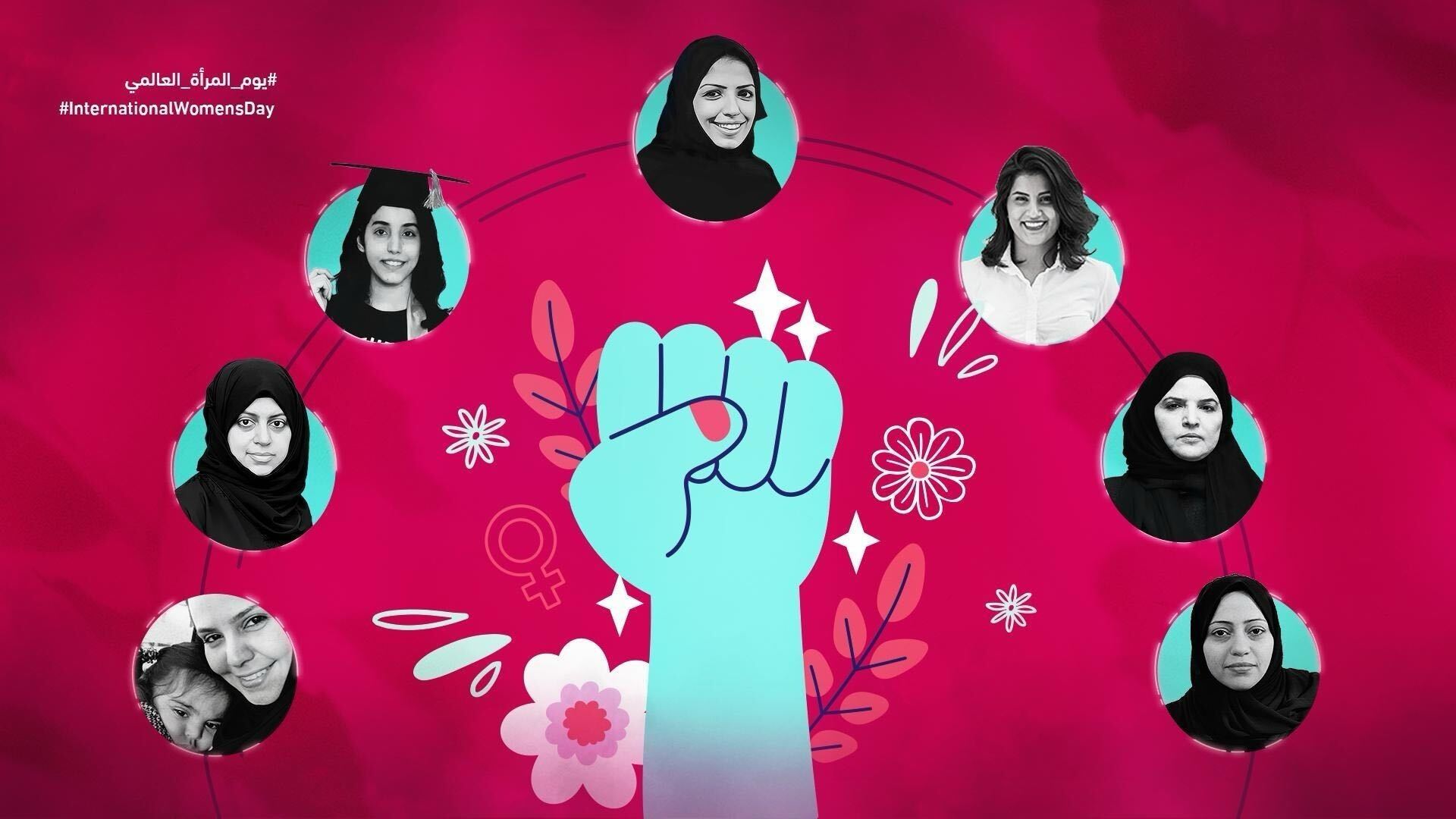On International Women’s Day, the undersigned organisations renew their call on Saudi Arabian authorities to release all women human rights defenders (WHRDs), women’s rights activists and their supporters who are detained in contravention of international human rights standards. The organisations further call on Saudi authorities to lift travel bans imposed on WHRDs and their relatives, and to abolish the male guardianship system.
ٍSince the ascension of Crown Prince Mohammed bin Salman to power in 2017, Saudi authorities have lauded themselves for implementing reforms to the male guardianship system that ease restrictions on women’s rights and freedoms, such as their rights to drive and travel freely. The Crown Prince also touted the country’s first Personal Status Law as a major “leap” toward “women’s empowerment.” However, the law, which came into force in June 2022, codifies discrimination against women in almost every aspect of family life and retains many harmful features of the traditional male guardianship system.
Meanwhile, Saudi authorities continue to arbitrarily detain and/or impose travel bans on many women who have championed women’s rights. For instance, in 2023, the Specialised Criminal Court (SCC), Saudi Arabia’s notorious counter-terrorism court, sentenced academic Salma al-Shehab to 27 years in prison, followed by a travel ban of the same duration. Her trumped up ‘terrorism’ charges were based solely on her social media posts expressing support for Saudi human rights and women’s rights activists.
Similarly, the SCC sentenced Nourah al-Qahtani following a grossly unfair trial to a staggering 45 years in prison, followed by a 45-year travel ban. The court charged her with vaguely defined ‘terrorism’ charges for her tweets criticising human rights abuses committed by Saudi authorities and calling for the release of political prisoners. In 2023, the UN Working Group on Arbitrary Detention (UN WGAD) found both al-Shehab and al-Qahtani’s detentions to be arbitrary and urged Saudi authorities to release them immediately.
In 2022, Saudi authorities arbitrarily detained activist and blogger Manahel al-Otaibi for posting photos of herself online without the abaya (traditional dress) and for social media posts in support of liberal dress codes for women and the abolition of male guardianship laws. Al-Otaibi has been forcibly disappeared since November 2023. The charges against al-Otaibi expose the hypocrisy of the Saudi authorities’ claims of reform and contradict the narrative of Crown Prince Mohamed bin Salman, who stated in a television interview in March 2018 that “the decision is entirely left for women to decide what type of decent and respectful attire she chooses to wear.”
In December 2023, the UN WGAD, the Special Rapporteur on the situation of human rights defenders, the Special Rapporteur on the promotion and protection of the right to freedom of opinion and expression and the Working Group on discrimination against women and girls together expressed their grave concern over al-Otaibi’s fate and upcoming trial. On 24 January 2024, the Saudi government responded to the UN, but the content of the letter has not been released at the time of writing.
Other women unfairly sentenced to lengthy jail sentences over their peaceful activism include secondary school student Manal al-Gafiri, Fatima al-Shawarbi, and Sukaynah al-Aithan, who were sentenced to 18, 30 and 40 years in prison, respectively.
Meanwhile, prominent women human rights defenders who have long advocated for women’s rights continue to face heavy restrictions since being released from prison, frequently in the form of travel bans that prevent them from leaving the country. For example, after spending almost three years in prison, renowned activist Loujain al-Hathloul remains under an arbitrary travel ban, despite its expiry in late 2023 Al-Hathloul gained recognition for protesting against the driving ban on women and the male guardianship system, notably by publicly driving her car. In response, Saudi authorities arrested her, held her incommunicado for three months, tortured her and sentenced her to a prison term following a grossly unfair trial on ludicrous charges.
In light of the above, and on the occasion of International Women’s Day, the undersigned organisations renew their call on Saudi authorities to:
- Immediately and unconditionally release Salma al-Shehab, Nourah al-Qahtani and other women detained over their peaceful activism;
- Reveal the fate and whereabouts of Manahel al-Otaibi, drop the charges against her and release her immediately;
- Lift the travel ban on Loujain al-Hathloul, her family members and any other WHRDs currently under such bans;
- Immediately abolish the male guardianship system and repeal laws and end practices that discriminate against women.
Signatories:
ALQST for Human Rights
Amnesty International
CIVICUS
European Saudi Organization for Human Rights (ESOHR)
Front Line Defenders
Gulf Centre for Human Rights (GCHR)
HuMENA for Human Rights and Civic Engagement
International Service for Human Rights (ISHR)
MENA Rights Group
Salam for Democracy and Human Rights




